Sepehr Saadatmand
Autonomous Control of a Line Follower Robot Using a Q-Learning Controller
Jan 23, 2020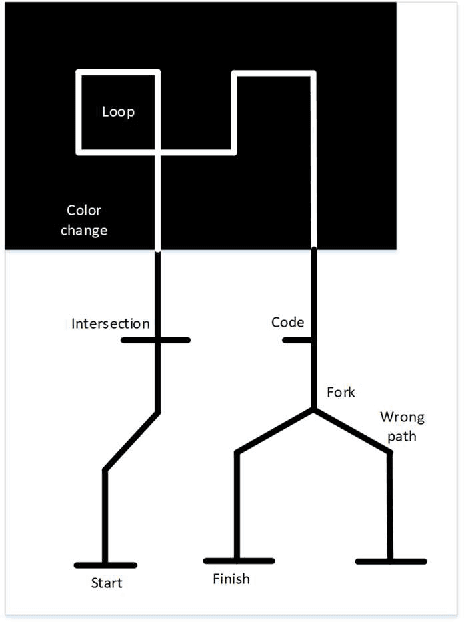
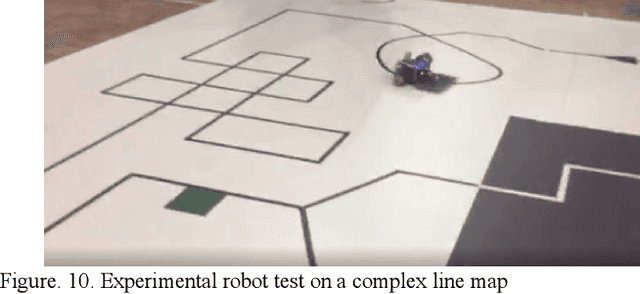
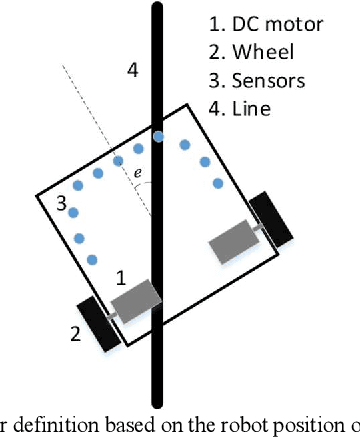

Abstract:In this paper, a MIMO simulated annealing SA based Q learning method is proposed to control a line follower robot. The conventional controller for these types of robots is the proportional P controller. Considering the unknown mechanical characteristics of the robot and uncertainties such as friction and slippery surfaces, system modeling and controller designing can be extremely challenging. The mathematical modeling for the robot is presented in this paper, and a simulator is designed based on this model. The basic Q learning methods are based pure exploitation and the epsilon-greedy methods, which help exploration, can harm the controller performance after learning completion by exploring nonoptimal actions. The simulated annealing based Q learning method tackles this drawback by decreasing the exploration rate when the learning increases. The simulation and experimental results are provided to evaluate the effectiveness of the proposed controller.
Neural Network Predictive Controller for Grid-Connected Virtual Synchronous Generator
Aug 14, 2019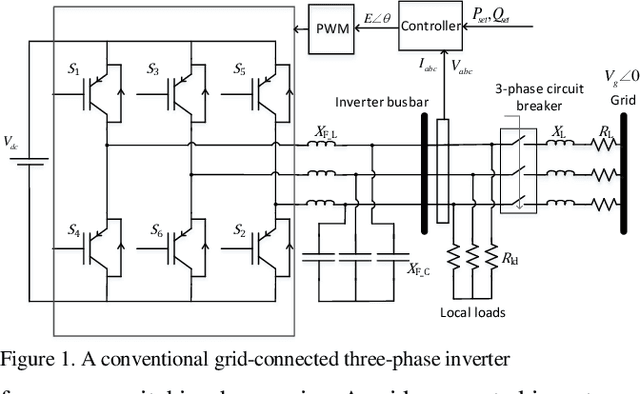
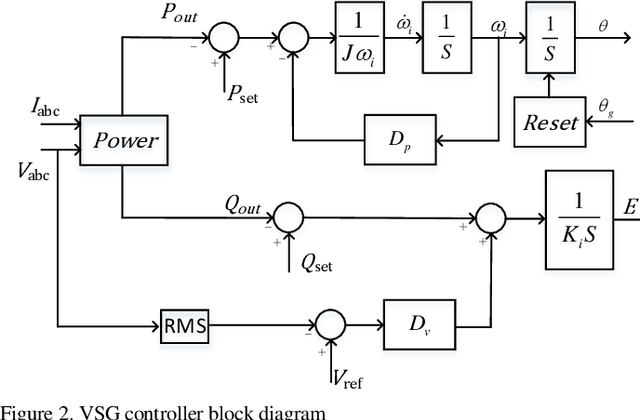
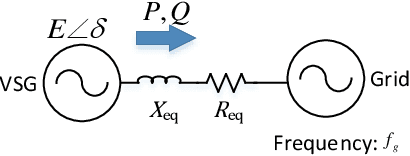
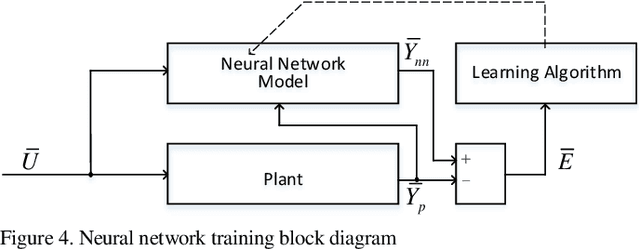
Abstract:In this paper, a neural network predictive controller is proposed to regulate the active and the reactive power delivered to the grid generated by a three-phase virtual inertia-based inverter. The concept of the conventional virtual synchronous generator (VSG) is discussed, and it is shown that when the inverter is connected to non-inductive grids, the conventional PI-based VSGs are unable to perform acceptable tracking. The concept of the neural network predictive controller is also discussed to replace the traditional VSGs. This replacement enables inverters to perform in both inductive and non-inductive grids. The simulation results confirm that a well-trained neural network predictive controller illustrates can adapt to any grid impedance angle, compared to the traditional PI-based virtual inertia controllers.
Heuristic Dynamic Programming for Adaptive Virtual Synchronous Generators
Aug 14, 2019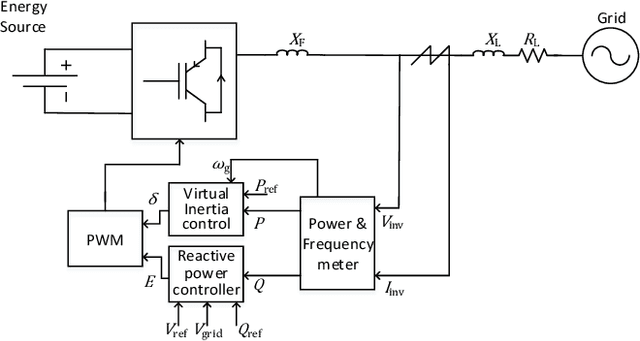
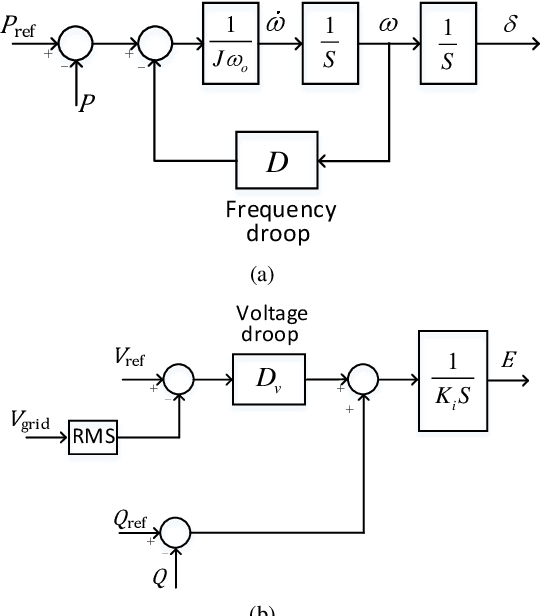
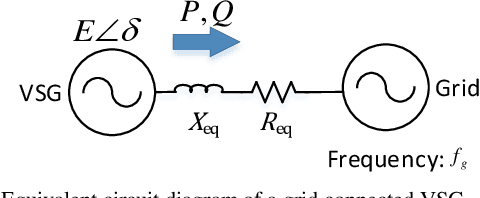

Abstract:In this paper a neural network heuristic dynamic programing (HDP) is used for optimal control of the virtual inertia based control of grid connected three phase inverters. It is shown that the conventional virtual inertia controllers are not suited for non inductive grids. A neural network based controller is proposed to adapt to any impedance angle. Applying an adaptive dynamic programming controller instead of a supervised controlled method enables the system to adjust itself to different conditions. The proposed HDP consists of two subnetworks, critic network and action network. These networks can be trained during the same training cycle to decrease the training time. The simulation results confirm that the proposed neural network HDP controller performs better than the traditional direct fed voltage and reactive power controllers in virtual inertia control schemes.
Dual Heuristic Dynamic Programing Control of Grid-Connected Synchronverters
Aug 14, 2019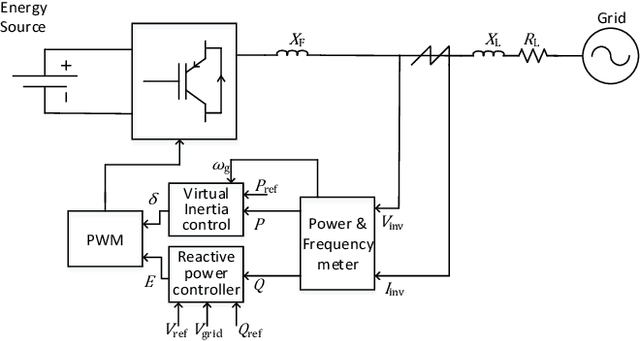
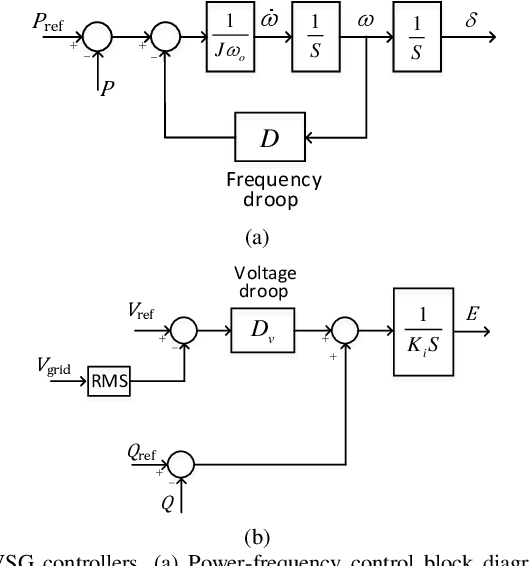
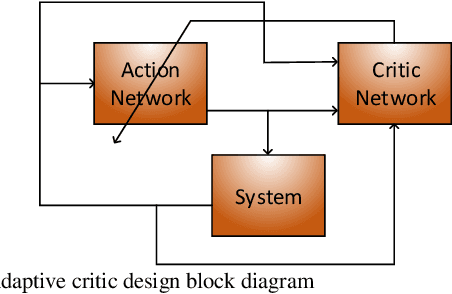
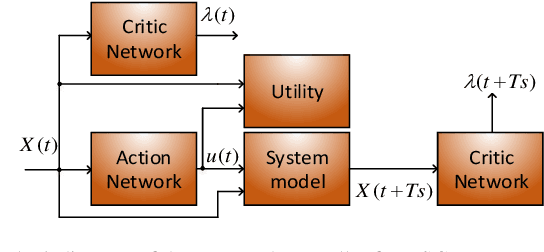
Abstract:In this paper a new approach to control a grid-connected synchronverter by using a dual heuristic dynamic programing (DHP) design is presented. The disadvantages of conventional synchronverter controller such as the challenges to cope with nonlinearity, uncertainties, and non-inductive grids are discussed.To deal with the aforementioned challenges a neural network based adaptive critic design is introduced to optimize the associated cost function. The characteristic of the neural networks facilitates the performance under uncertainties and unknown parameters (for example different power angles). The proposed DHP design includes three neural networks: system NN, action NN, and critic NN. The simulation results compare the performance of the proposed DHP with a traditional PI-based design and with a neural network predictive controller. It is shown a well trained DHP design performs in a trajectory, which is more optimal compared to the other two controllers.
Estimating the Rating of Reviewers Based on the Text
May 22, 2018

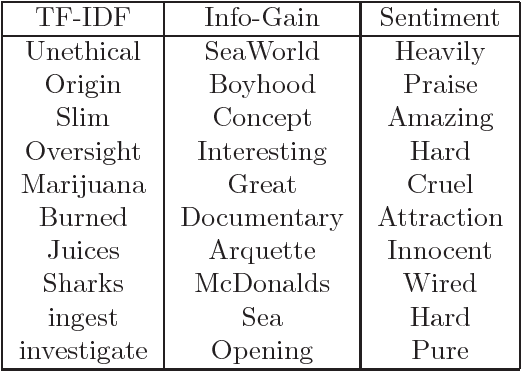
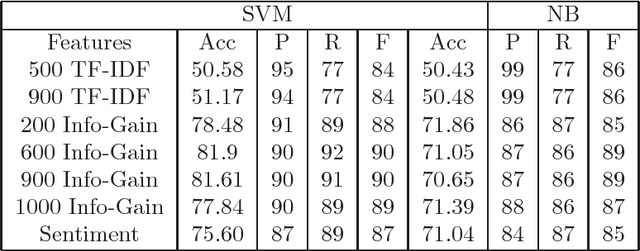
Abstract:User-generated texts such as reviews and social media are valuable sources of information. Online reviews are important assets for users to buy a product, see a movie, or make a decision. Therefore, rating of a review is one of the reliable factors for all users to read and trust the reviews. This paper analyzes the texts of the reviews to evaluate and predict the ratings. Moreover, we study the effect of lexical features generated from text as well as sentimental words on the accuracy of rating prediction. Our analysis show that words with high information gain score are more efficient compared to words with high TF-IDF value. In addition, we explore the best number of features for predicting the ratings of the reviews.
* Accepted in the First International Conference on DATA ANALYTICS & LEARNING 2018 http://www.dal-conference.org/2018/acceptedPapers.html You can find this paper at the above link, paper ID: 76
 Add to Chrome
Add to Chrome Add to Firefox
Add to Firefox Add to Edge
Add to Edge